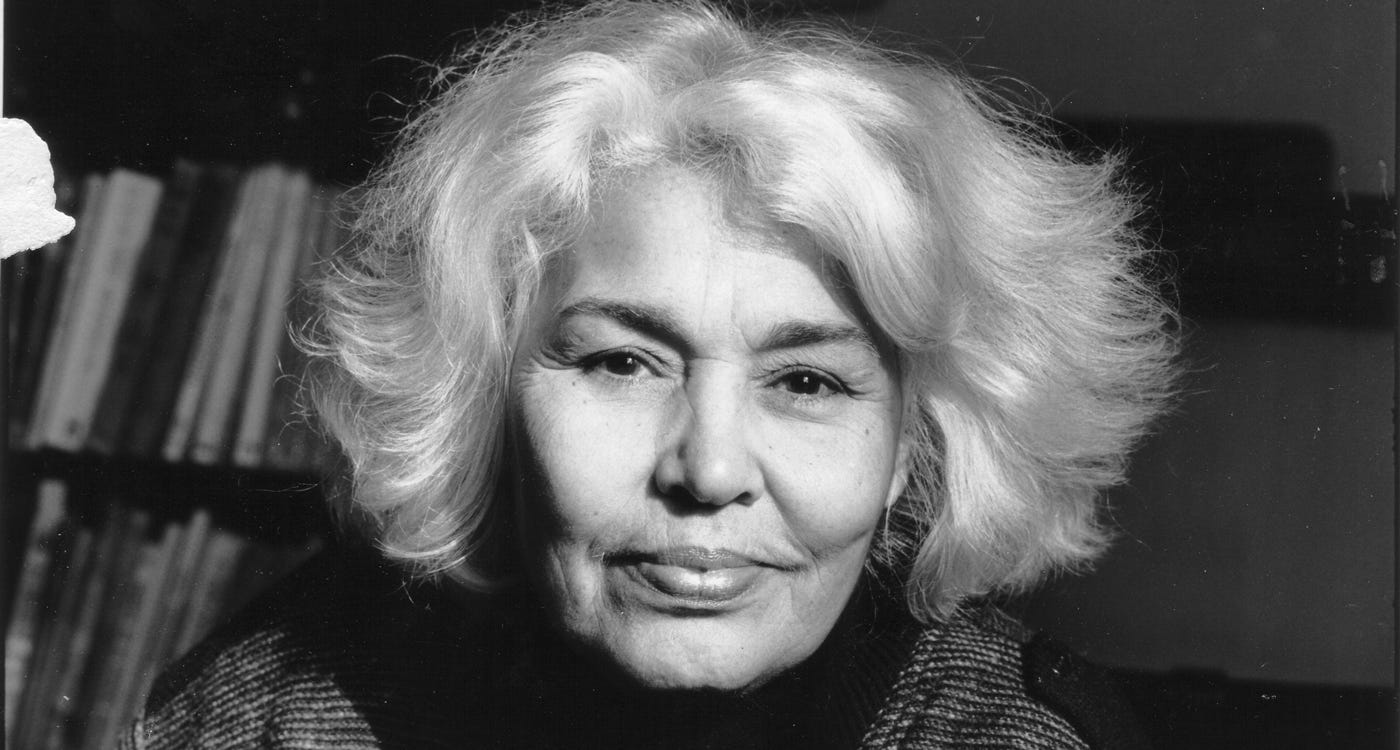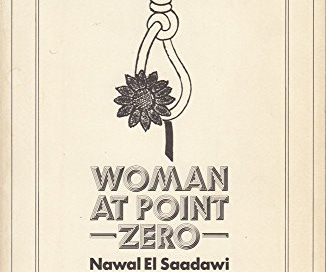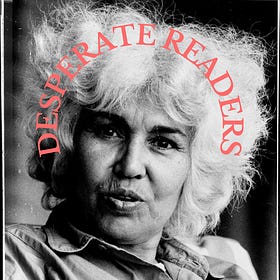Last week’s episode covered Nawal El Saadawi’s Woman at Point Zero, which recounts the life of Firdaus, a young Egyptian woman imprisoned for murder and staring down death row. Saadawi met the real Firdaus in the 1970s after being removed from her position as the Director of Health Education and Editor-in-Chief of Health Magazine. During her time at the prisons. Saadawi says she met many women and recorded case-studies, which eventually led to her 1976 book Women and Neurosis in Egypt, but Firdaus remained “a woman apart.”
XXXIV. Life Is Hard, but You Must Be Harder
Listen to the episode on Woman at Point Zero, if you haven't already.
Perhaps relatively lesser-known in the West, Saadawi is considered the “Simone de Beauvoir of the Arabic World,” working as a doctor and feminist activist as well as a writer. Throughout her life she was outspoken on women’s issues, criticized Islamic religion and its oppression of women, spoke out against comparisons to the West, and advocated for true democracy. In the early 1981, she was imprisoned by President Anwar Sadat for her outspoken criticism at Qanatir Women's Prison, the same prison where Firdaus had been held. The upshot was her 1983 book, Memoirs from the Women’s Prison:
“Writing: such has been my crime ever since I was a small child. To this day writing remains my crime. Now, although I am out of prison, I continue to live inside a prison of another sort, one without steel bars. For the technology of oppression and might without justice has become more advanced, and the fetters imposed on mind and body have become invisible. The most dangerous shackles are the invisible ones, because they deceive people into believing they are free. This delusion is the new prison that people inhabit today, north and south, east and west...We inhabit the age of the technology of false consciousness, the technology of hiding truths behind amiable humanistic slogans that may change from one era to another...Democracy is not just freedom to criticize the government or head of state, or to hold parliamentary elections. True democracy obtains only when the people - women, men, young people, children - have the ability to change the system of industrial capitalism that has oppressed them since the earliest days of slavery: a system based on class division, patriarchy, and military might, a hierarchical system that subjugates people merely because they are born poor, or female, or dark-skinned.”
In the interview below from the University of Washington, Saadawi describes her childhood, which is not too different than Firdaus’s. Both grew up in small, rural villages and were expected to marry immediately, but Saadawi went on to go to medical school. She speaks about the false separation between science and art, about her criticism of Anwar Sadat, and about patriarchy and religion.

Read more about Saadawi’s time in prison here.
Thank you for you support of Desperate Readers! What to help the pod? Tell a friend!





